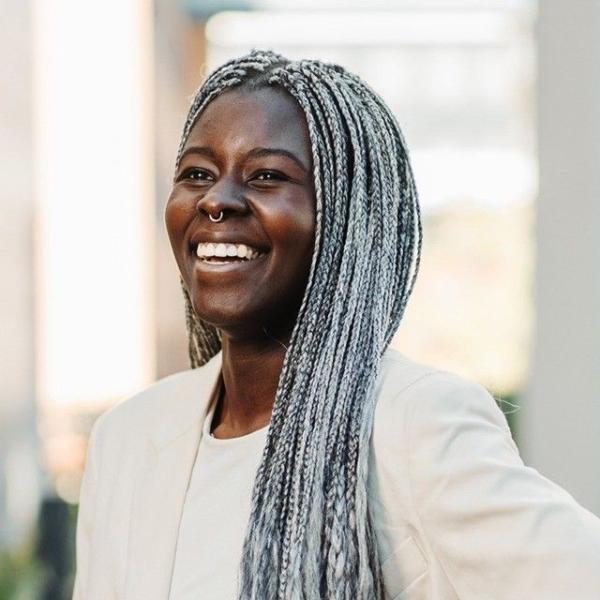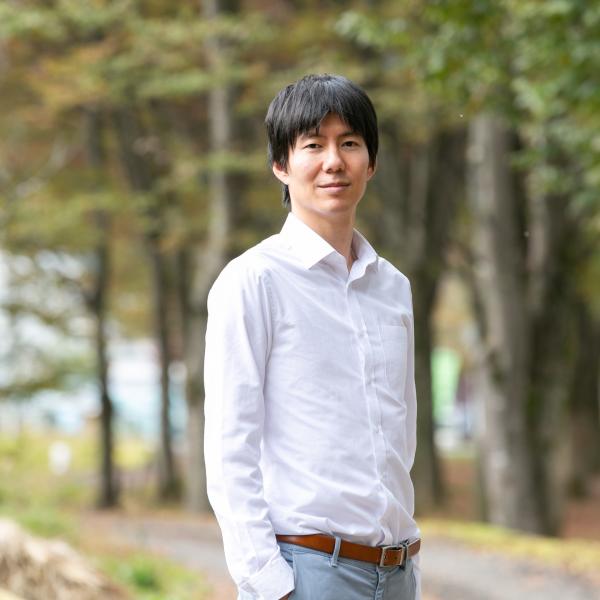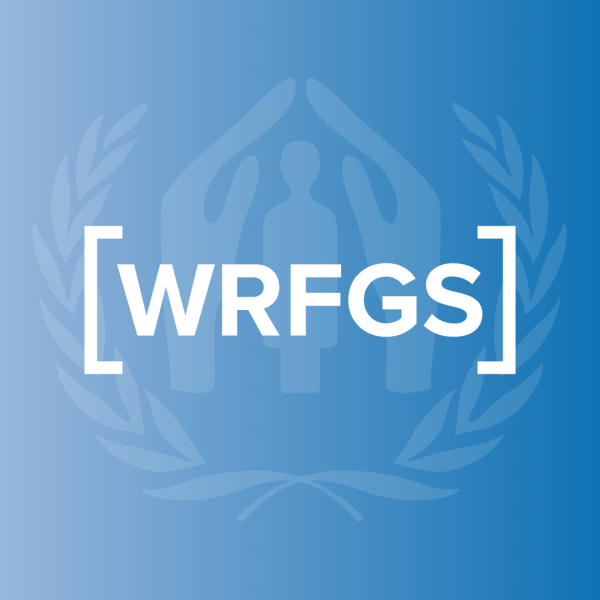The WRFGS (“With Refugees”) stake pool – a collection of Cardano’s cryptocurrency, ADA – continues to grow in its mission to generate sustainable funds for UNHCR, its impact is gaining momentum. Switzerland for UNHCR and the Cardano Foundation are proud to introduce three individuals who bring soul, experience, and purpose to this groundbreaking initiative: Beatrice Anihiri, Seira Yun, and Zain Khan. Each ambassador brings a unique blend of lived experience, technical expertise, and a shared conviction: that Web3 and the Cardano ecosystem can be harnessed as instruments for real social change.
WRFGS Ambassadors: Stories of refugee advocacy and blockchain innovation

Beatrice Anihiri
“I’ve always been drawn to emerging technologies … When I began to understand that Blockchain could be used for more than just financial transactions, it opened my eyes to new possibilities.”
As a former refugee, Beatrice brings a deeply personal and informed perspective to her work: she co-founded an initiative dedicated to equipping refugee women with the tools and agency to engage meaningfully in Web3. Her experience bridges displacement and digital innovation. Beatrice helps the Web3 community understand the realities of forced migration – and how blockchain can create new pathways, not just for tech inclusion but for dignity and empowerment.
Her ambassadorship is a continuation of that mission: to build a Web3 ecosystem that opens doors for everyone, especially refugee women. Her lived experience lends credibility and insight to WRFGS’s goal of connecting technology and humanitarian impact.

Seira Yun
Seira is a serial impact entrepreneur and angel investor, with professional leadership experience at ICRC, UNHCR, and successful social ventures. As Founder and CEO of Socious, he has pioneered a decentralized ecosystem that connects changemakers with funding, talent, and opportunities.
Seira’s approach is deeply rooted in lived experience: he is a migrant, neurodivergent individual, and a proud member of the LGBTQ+ community. This intersectionality drives his passion for accessibility, justice, and inclusion. His technical training as a fullstack developer, and academic background in Social Innovation from Cambridge empower him to build technology that serves humanity’s toughest challenges.
His connection to refugee advocacy is multigenerational, as his grandfather fled Korea during World War II. Seira sees WRFGS as a mechanism to democratize impact. As ambassador, he helps bridge technical possibilities with lived realities – showing how Web3 innovation can restore dignity and agency to displaced communities.
Zain Khan
Zain brings a rare blend of science, anthropology, and emerging tech insight. With training in biotechnology and anthropology, he has navigated industries from food and travel to decentralized media infrastructure. Now based in Dubai, he focuses on shaping the future of marketing and storytelling in the Web3 space.
For Zain, Web3 isn't just a technological shift – it’s a call to collective consciousness. He believes that decentralized infrastructure, grounded in human connection, can unlock creativity, compassion, and collaboration at scale. His ethos closely aligns with WRFGS's values: solidarity, humanitarian innovation, and inclusivity.
“As my belief goes, Web3 is a natural progression of the human intellect. It urges us to move beyond ego, borders, and fear, and toward a future defined by inclusion, healing, and shared responsibility.”
In his ambassador role, Zain aims to activate global communities, spark awareness, and show that technology can be a force for systemic change.
A quick refresher: What is WRFGS and how does it work?
WRFGS is a charity stake pool launched by Switzerland for UNHCR in partnership with the Cardano Foundation and operated through Taurus infrastructure. Anyone holding Cardano’s native token ADA can delegate (“stake”) their ADA to the WRFGS pool – without locking up their assets or sacrificing ownership. The Cardano network automatically distributes staking rewards every five days. In WRFGS, 100% of those rewards are donated to Switzerland for UNHCR: 80% to support urgent refugee operations in underfunded crises, and 20% to the Refugee led Innovation Fund, which amplifies projects led by displaced people themselves.
WRFGS was launched in late 2022 with an initial delegation of 3.5 million ADA from the Cardano Foundation and quickly began earning blocks and delivering meaningful impact. In 2024, this innovative effort was awarded INATBA’s “Most Exciting Project in Sustainable Innovation” for its powerful blend of community driven impact staking and real humanitarianism.
By staking to WRFGS, Cardano users become part of a new philanthropic ecosystem – transforming passive crypto holdings into ongoing support for refugees worldwide, even in emergencies far from the spotlights.

How you can join the journey
Delegate your ADA to WRFGS via a supported Cardano wallet (Yoroi, Nami, Daedalus, etc.) – you keep full control, and your rewards help refugees in need.
Follow our ambassadors on social platforms and at events – hear their stories and learn how Web3 can become a platform for inclusion.
Share this initiative with your networks – every new delegator expands the pool, increases the rewards, and multiplies impact.
Suggest collaborations: Whether you’re an organization, developer, or social innovator, contact Switzerland for UNHCR or the Cardano Foundation to explore new stake pool-based or NFT driven campaigns.
Learn more about the newly launched ETP, an innovative way for a broader array of actors to contribute.
Beatrice Anihiri, Seira Yun, and Zain Khan are not simply ambassadors – they are living proof of what happens when technology meets humanity. Through their ambassadorship with WRFGS, they are helping bridge blockchain innovation with meaningful social impact.
They remind us that Web3 isn't just about code, tokens, or users – it’s about people: their stories, their resilience, and their right to belonging.
With every ADA staked to WRFGS, with every story shared, and with every conversation started – we move closer to a vision of Web3 that is inclusive, compassionate, and relentlessly human. A vision of Web3 that benefits people forced to flee all across the world.
To learn more about staking or joining the WRFGS journey, visit unrefugees.ch/en/blockchain-refugees
What is a stake pool?
A stake pool is a collection of Cardano’s cryptocurrency, ADA, that holders delegate to help operate the blockchain network. By pooling their ADA, participants make the system more secure and efficient. In return, they receive staking rewards. In the case of the WRFGS (“With Refugees”) stake pool, 100% of those rewards are donated to Switzerland for UNHCR to support refugees worldwide.
What is staking and how does it help refugees?
Staking is the process of delegating your ADA (Cardano’s native token) to a stake pool to support the blockchain’s operations. Normally, delegators earn rewards. With WRFGS, those rewards are automatically redirected to fund humanitarian aid – helping provide shelter, education, clean water, and other vital support for displaced people.
What is Web3?
Web3 refers to the next generation of the internet, built on decentralized technologies such as blockchain. Unlike Web2, where data is controlled by centralized companies, Web3 gives individuals more ownership, transparency, and participation. Projects like WRFGS show how Web3 can be used not only for finance, but also for humanitarian innovation and social good.
What is Cardano and why is it used here?
Cardano is a blockchain platform known for its security, sustainability, and energy efficiency. It uses a proof-of-stake system, which allows projects like WRFGS to channel staking rewards into real-world causes. This makes Cardano an ideal ecosystem for combining crypto innovation with social impact.
What is ADA?
ADA is the native cryptocurrency of the Cardano blockchain. It can be used for transactions, staking, and participating in governance on the network. By staking ADA to the WRFGS pool, holders can transform their digital assets into continuous support for UNHCR’s work with refugees.
Do I lose my ADA when I stake to WRFGS?
No. When you delegate your ADA to WRFGS, your funds stay in your wallet and under your control. You are simply choosing to direct the staking rewards to humanitarian projects through Switzerland for UNHCR.
What is an ETP?
An ETP, or Exchange Traded Product, is a financial security that can be bought and sold on a stock exchange, similar to a share. The ETP on the SIX Swiss Exchange by issuance.swiss AG in partnership with Switzerland for UNHCR and the Cardano Foundation is backed by ADA and uses staking rewards to fund refugee support. It’s the world’s first ETP designed to directly channel crypto staking rewards into humanitarian aid.
What is the Refugee-led Innovation Fund?
A portion of the WRFGS staking rewards (20%) supports UNHCR’s Refugee-led Innovation Fund. This fund backs initiatives designed and led by refugees themselves – ensuring that displaced communities have the resources and agency to shape solutions for their own futures.
How is staking different from a regular donation?
Traditional donations are one-off contributions. With a charity stake pool like WRFGS, your ADA is never spent or transferred – you keep it – while the ongoing staking rewards create a sustainable stream of funding for refugees. It’s a way of turning blockchain and crypto into continuous humanitarian support.